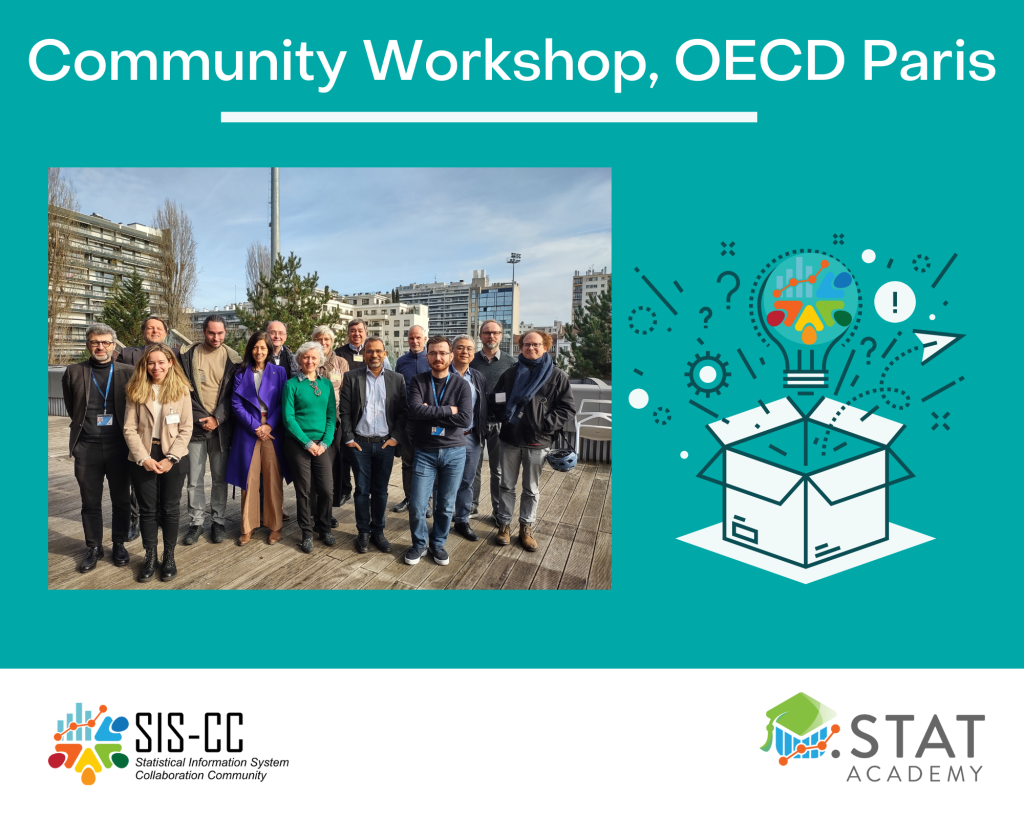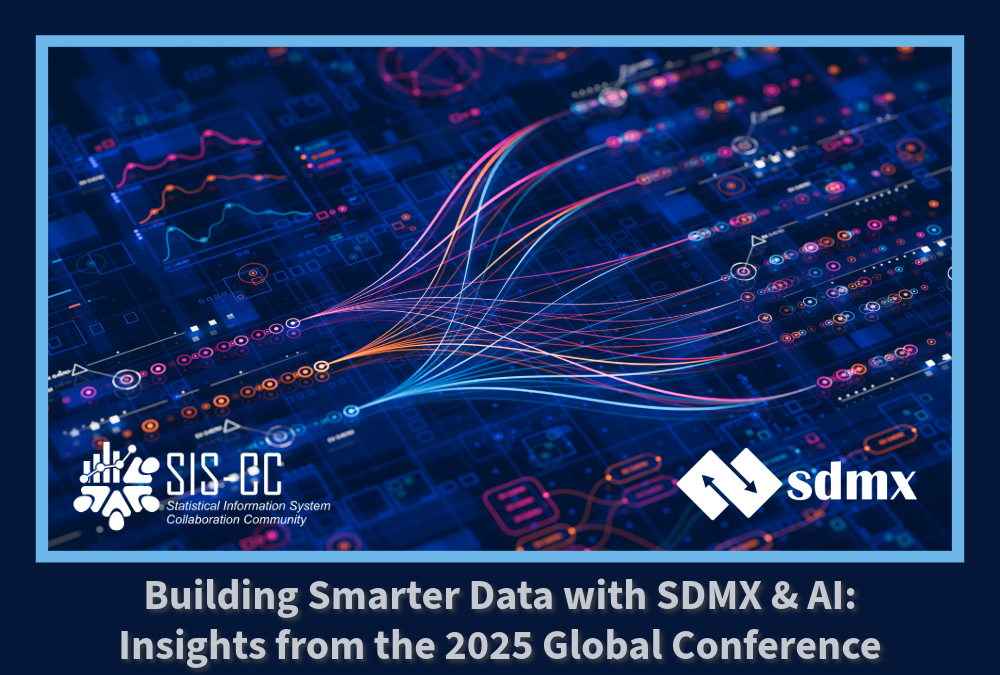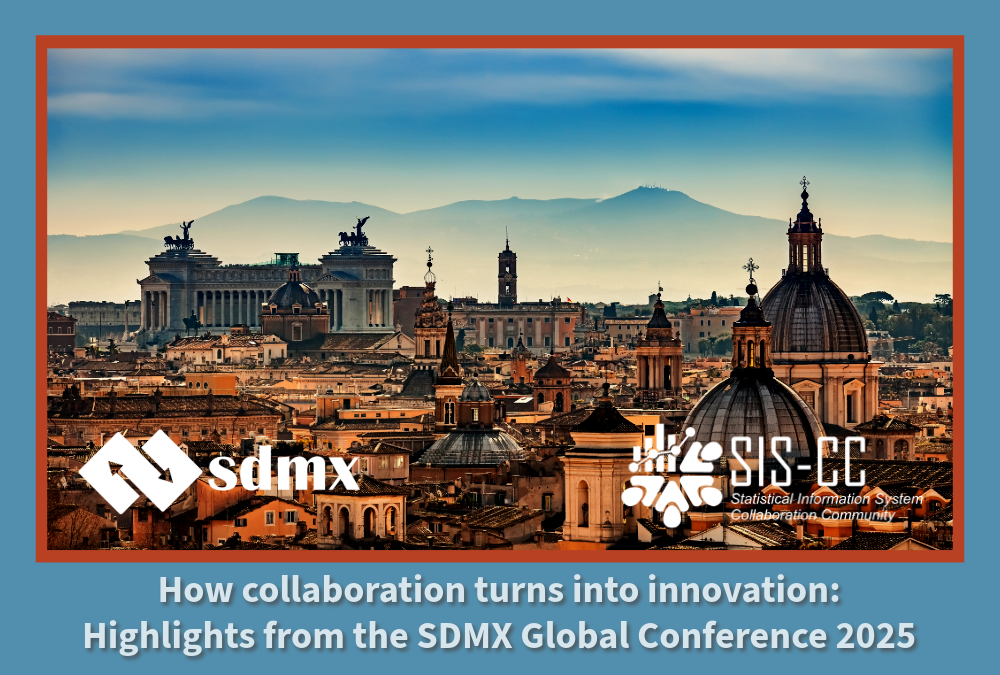
The Community came together during a two-day workshop at the OECD headquarters in Paris in February 2023. The hybrid event brought together more than 50 participants from members, key partners such as Eurostat, BIS, ECB and UNSD, and invited experts. Participants shared their experiences, provided feedback, and expressed their vision for the future of the community and of the .Stat Suite at large.
The general message that resonated with all participants was that of a strong community feeling with the need to work even closer together and to support each other not only within the community but also with external partners. The need for sharing of experiences to benefit from the knowledge acquired by other members going through similar processes was one of the main takeaways.
The results of the usability test campaign and SWOT analysis, which were undertaken in the weeks prior to the workshop, established that the .Stat Data Explorer has a leading edge over comparable platforms, yet also identified a number of opportunities to build on this success. The interventions by participants analysed how to improve certain features of the .Stat Data Explorer. A key area identified for the Community to focus was on the search component and how to adapt to the rapidly changing demands of today’s data users.
After a series of inspiring presentations by members and invited experts, participants were split into different groups to identify opportunities for innovation, such as the integration of the .Stat Suite into a broader web experience and a smart search experience with the Solr search engine. An important note is that the Vanilla Solr implementation in the .Stat Data Explorer is expected to be completed by end 2023, including the latest version of lexical search features Solr has to offer – in areas such as stemming, synonyms, auto-completion and spellcheck.
Interoperability through standard compliance and modular architecture is at the heart of the Community has delivered great value as exemplified by the longstanding, symbiotic collaboration with Eurostat on SDMX – to be expanded as the implementation of SDMX 3.0 features – including, geospatial and micro-data features – remains a crucial objective requiring tight coordination between Eurostat, OECD and BIS, as announced at the 11th SDMX Expert Meeting in December 2022.
Key directions emerging from the workshop: intensifying user-centric design efforts, making search smarter to overcome the accessibility gap, leveraging interoperability for innovation.
The ambition that emerged from this workshop, that builds on the existing Community vision, a reference open source community for official statistics focusing on product excellence and delivering concrete solutions to common problems through co-investment and co-innovation, is to provide statistical organisations with the infrastructure, tools and resources to develop data hubs, integrating data from various domains and sectors according to an SDMX-based information model, making them accessible through a myriad of data visualisation products and semantic layer. In this vision, .Stat Suite becomes the single source of truth facilitating integration of data from multiple domains and their dissemination through multiple channels, enabling organisations to overcome the cognitive gap between data producers and data consumers.
The workshop illustrated well how vibrant the Community is and the benefits of not only sharing experiences, but forging a vision together, conducive to joint co-innovation and co-investment plans – a distinctive feature of Community.
There was a strong desire expressed by all participants for more such workshops in the future, so more substantive and collaborative engagement to come!


